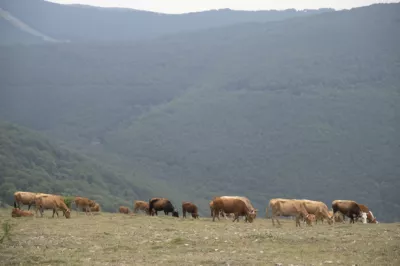General information
RDP Priority
- P4. Ecosystems management
RDP Measure
- M10: Agri-environment-climate
Summary
In Northern Greece, it was a common practice for livestock breeders to randomly cross domestic breeds with imported males of different breeds. This practice eroded genetic resources and created animals that were vulnerable to disease and injury and that needed significant volumes of feed and antimicrobials to maintain production. The project sought to reverse this trend and restore the Greek Red Kastoria-Kristallopigi breed by establishing a pedigree certification to highlight the quality of the meat and build consumer demand.
Results
The project brought important economic benefits since the start. It started with 27 breeders and 1700 animals. Now there are 85 breeders rearing 5200 pedigree certified animals. It helped breeders to maintain their jobs and to encourage them to stay in the rural area. The pedigree animals born within the framework of the project are better adapted to the local conditions and terrain and are more resilient to injury and disease. Finally, because of the project, it was possible to make Greek beef more competitive by focusing on quality rather than quantity.

Promoter
Agricultural Cooperative for Cereals & Livestock Products of Kastoria
Funding
Total budget 173 475 (EUR)
EAFRD 116 831 (EUR)
National/Regional 38 944 (EUR)
Private 17 700 (EUR)
Resources
Documents
Links
contact

